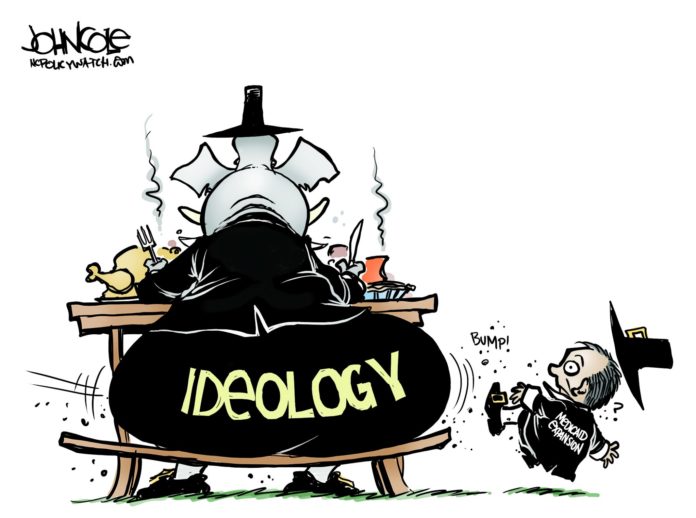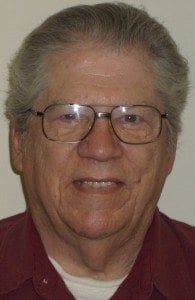BY KENNETH WELLS
Oklahoma’s Republican-led Legislature’s position to continue with recent tax cuts and tax giveaways they have put into law is the major factor causing the $611 million shortfall in our state’s 2015-16 budget. The critical program [state-operated but only partially-funded by Oklahoma] that will be affected with the proposed cuts to agency budgets is the Medicaid Program which is managed by the Oklahoma Health Care Authority [OHCA].
As reported by the Oklahoma Policy Institute, There are three main components to OHCA’s funding needs:
- An additional $45.5 million is needed due to the decline in the federal share of Oklahoma’s Medicaid expenditures. A state’s federal matching share, known as FM AP, is determined automatically each year with a formula based on a state’s personal income. Oklahoma’s Federal Medical Assistance Percentage [FM AP] has declined steadily for the past decade as the state’s economic growth has exceeded the nation’s.
- $26 million is needed for projected growth in Medicaid enrollment and utilization.
- $31 million is needed to replace carryover funds used in this year’s budget.
Last year’s flat funding for OHCA left that agency with a shortfall of $80 million. With the loss of accompanying federal funds, the agency was forced to enact cuts of over $200 million. These included eliminating and restricting covered benefits, hiking co-payments on Medicaid recipients and reducing reimbursement rates for most Medicaid providers by 7.75%!
The U.S. House and Senate have passed and forwarded to President Obama for signature an extension of the State Children’s Health Insurance Program [SCHIP). Because of this passage, Oklahoma will receive a higher federal match for some low-income children through 2017.
In 2016, this extension will create 23% more coverage than 2015.
This boost in the federal match is part of the Affordable Care Act of 2010. But due to opposition to the act, SCHIP could not be initially funded. The often-heard rhetoric that the federal government cannot be trusted to fund programs is only true when the U.S. government’s legislative branch is held hostage by a few.
The formula for the Medical Assistance Percentage is included in the Social Security Act and only adjusted for emergency situations for specified periods. The percentage of assistance given to a state is based on the state’s per capita income compared to the national per capita income. The federal match is never less than 50% for higher income states but not more than 82% for states with lower incomes than the national average.
Oklahoma’s recent energy boom caused this state to experience an economic growth which outpaced most of the nation. Oklahoma’s assistance percentage has been reduced from 67.1% in fiscal year 2007 to 60.99% in fiscal year 2016.
David Blatt, executive director of the Oklahoma Policy Institute, explains it this way: “Although personal income is an imperfect measure of a state’s economic well-being and fiscal capacity, in general, a thriving state should be enjoying solid revenue growth and be in less need of federal assistance. In Oklahoma, however, even prior to the recent drop in oil prices and accompanying job layoffs, the state’s budget and tax policy choices – including repeated tax cuts, ballooning tax breaks, and growing off-the-top allocations – have led to stagnant revenue collections. This has left us unable to make up for the declining federal match without other cuts. It’s a consequence of policy choices made in Oklahoma City, not Washington, DC!”
Since the inception of the Medicaid program, there has never been a revision of the FM AP formula to reduce the federal share of Medicaid costs.
Oklahoma’s dilemma over OHCA’s healthcare costs and budget deficit would be resolved if the state Legislature and Gov. Mary Fallin would expand Medicaid to low-income working adults. An estimated $45 million savings in current healthcare costs plus $42 million Oklahoma is expected to receive when the Federal Medical Assistance Percentage bill is signed will make up the shortfall of over $80 million in last year’s OHCA budget!
– Kenneth Wells lives in Ratliff City, OK, and is an occasional contributor to The Oklahoma Observer. His essays appear in newspapers across southwestern Oklahoma.









